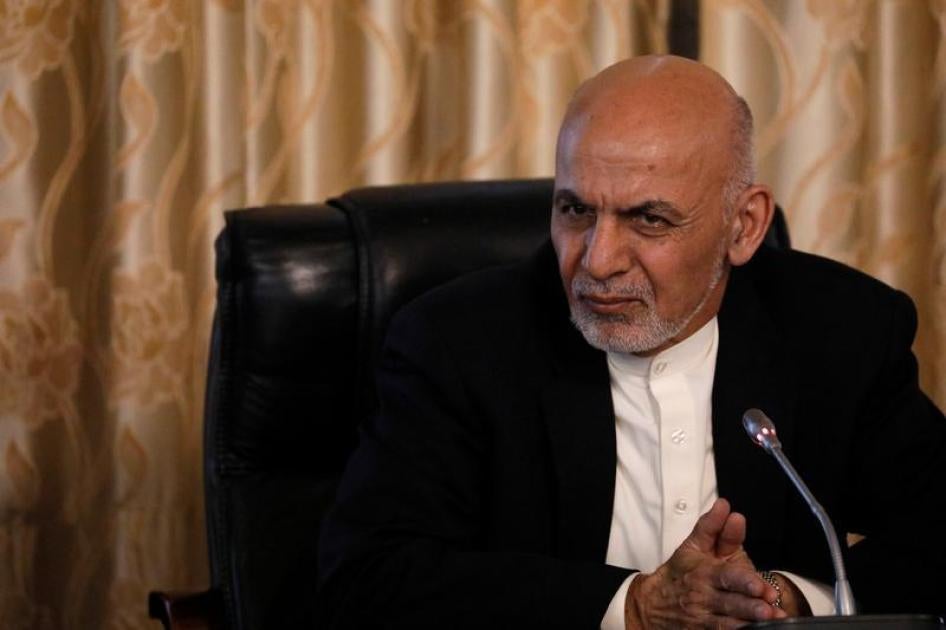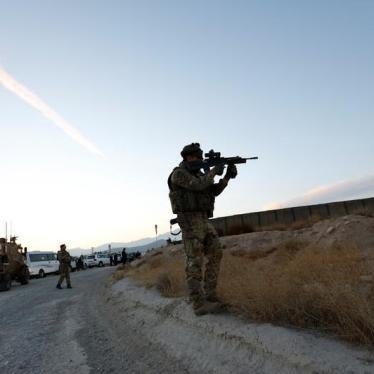The clock is ticking for President Ashraf Ghani to protect the rights of the Afghanistan’s many torture victims.
In March, the government finally enacted the Anti-Torture Law after years of political and bureaucratic battles. However, the law left out a system for “restitution, rehabilitation, and compensation” for victims of torture by state security forces. This Redress Annex, drafted by the Justice Ministry in cooperation with nongovernmental organizations in the Detention Working Group, was completed July. It is an essential element missing from the Anti-Torture Law, and President Ghani can rectify the error by adding it by decree.
This annex is sorely needed. Torture by Afghan security forces is routine and systematic. The United Nations Assistance Mission to Afghanistan issued a report in April that is a damning indictment of the government’s failure to take effective action against torture and other ill-treatment. The report found that the highest levels of torture of conflict-related detainees in police custody since it began monitoring detentions in 2010 was in 2015-16. Police in Kandahar province tortured or mistreated a “staggering 91 percent of detainees” by forcibly pumping water into their stomachs, crushing their testicles with clamps, suffocating them to the point of losing consciousness, and applying electric current to their genitals, among other practices.
In May, the UN Committee Against Torture, armed with the new UN report, questioned an Afghan government delegation about why very few police officers are ever disciplined for abuse, and why not a single senior officer in the Afghan police or National Directorate for Security intelligence agency has been prosecuted for torture or other mistreatment. The committee also asked the delegation about the government’s failure to provide statistics on complaints of torture and torture investigations. The committee also wondered why the government’s written response neglected to mention accountability at all given the delegation’s claim that ending impunity was a priority.
The pervasiveness of torture in Afghanistan makes its criminalization and the prosecution of alleged torturers an urgent priority. But the government also needs to enshrine in law the rights of torture victims to redress for their suffering. While waiting for prosecutors to act, a compensation system would create a new avenue for holding the government accountable. President Ghani should prevent any further delays by making sure that happens.
|
Dispatches
Afghanistan’s Torture Victims Deserve Redress
Add Compensation Provision to Anti-Torture Law
Your tax deductible gift can help stop human rights violations and save lives around the world.
Region / Country
Most Viewed
-
November 25, 2019
A Dirty Investment

-
June 3, 2025
“They’re Ruining People’s Lives”

-
December 21, 2023
Meta’s Broken Promises

-
January 25, 2024
“We’re Dying Here”

-
November 12, 2018
“Shall I Feed My Daughter, or Educate Her?”






